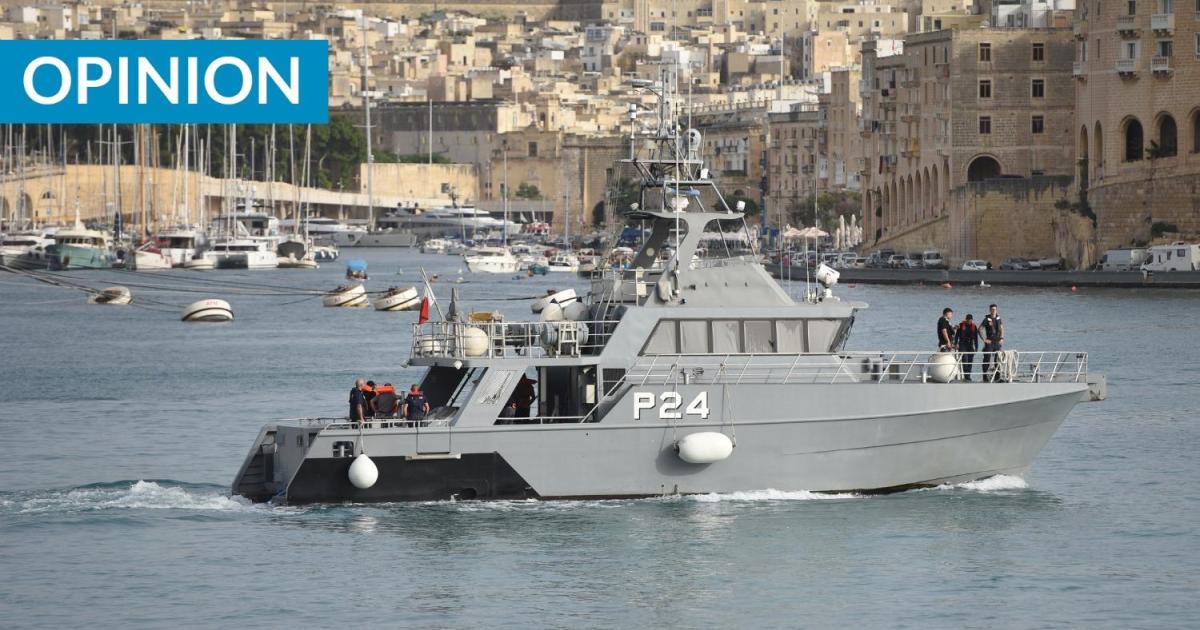A 2022 survey commissioned by Malta’s Ministry for Foreign Affairs found that 63 percent were firmly in favour of Malta’s constitutional neutrality clause. A mere six percent were against Malta’s neutrality.
I form part of that six percent.
Before outlining a rare, opposing view on neutrality and military non-alignment, it might be best to define the parameters of the discussion.
Malta cannot be a member of a military alliance. That much is outlined through a January 1987 amendment to our constitution.
The arguments I’ve heard over the years were that Malta has suffered too much under foreign dominion to ever form part of a military alliance, where we would, once again, be under the boot of foreign powers.
I can understand the logic behind that thinking.
For 3,000 years, Malta was under foreign control – from the Phoenicians to the British. That history has, understandably, made us wary of foreign powers.
But I would argue that neutrality and non-alignment only serve our needs under specific conditions, where the prevailing geopolitical climate is just right.
History shows us that neutrality alone is not a shield in an environment of geopolitical competition. Seven neutral countries were invaded during the Second World War – five by the Axis, two by the Allies. Neutrality’s value is only be sustained in an environment where international law is adhered to by most, if not all participants in the global order.
That global order is changing.
The post-Cold War era saw geopolitical rivalry shift into economic competition, lifting global living standards. But assuming that peace would last forever was a fallacy.
Changes in the geopolitical landscape can come about for any number of reasons. Today’s global order struggles to restrain states that challenge the status quo through war or coercion.
Malta’s neutrality was forged in the dying embers of the Cold War – a time when US power and NATO expansion underwrote Europe’s security.
We have enjoyed peace and prosperity, but it was also thanks to a post-Cold War environment which saw war between states decrease substantially.
Malta’s 3,000-year history, though, tells us a different story.
We proudly speak of the Great Siege of 1565. But whilst the Ottomans invaded, in part, due to their animosity towards the Knights, the Ottomans had grand designs on moving on towards mainland Europe.
The Knights and the Maltese were able to kick out the Ottomans in part due to the arrival of a relief force from the Viceroy of Sicily, which helped tip the balance in the Great Siege.
Napoleon Bonaparte, on his way to his Egyptian campaign, also took over Malta in 1798. The Maltese could not evict the French forces on their own and turned to the British navy for help.
British naval power tipped the scales in our favour.
The Italians and Germans recognized the importance of Malta’s strategic position to their North Africa campaign and sought to bomb the country into submission.
It was not Malta’s status as a British territory that got their attention – it was Malta’s position, and ability to harass Axis shipping. The staunch Maltese and British defenders saw off the relentless Axis onslaught, with increasing support from the US from 1942 onwards.
Again, foreign firepower helped remove the threat to Malta’s security.
Now, some may point to the EU’s Article 42.7 of the 2009 Lisbon Treaty, which says that EU member states “…shall have… an obligation of aid and assistance by all the means in their power…” to assist a fellow EU member under attack. Reassuring on paper – but how many EU states can react quickly, with real force and logistics, to repel an invader? Few, if any. It helps explain the recent scramble by EU nations to rebuild their long-neglected defence capabilities.
What about NATO’s Article 5? It says: “The Parties agree that an armed attack against one or more of them in Europe or North America shall be considered an attack against them all.” Stronger wording and carries the backing of not just most EU states, but also the US and UK, adding unmatched global reach and military capability. Does NATO membership pose risks? Possible. But driving is also dangerous, but I still get behind the wheel every day, and when I do, I do so with car insurance.
And yet, despite many lessons from our history as a nation, as a people, most would prefer to depend on the goodwill of other nations, in the hope that no one sees us as a threat or necessary to their designs.
History shows Malta never successfully survived a threat to its security alone – not in 1565, 1798, or 1942. Neutrality may be noble, but it is only as strong as the international order that “guarantees” it – and that international order is eroding before our very eyes.
In an age when power politics is reasserting itself, and small states are once again navigating a world shaped by rival power blocs, Malta must decide whether its constitutional neutrality is a strength – or a fading illusion.
 Matthew Bugeja
Matthew BugejaMatthew Bugeja has worked in international affairs at Malta’s Finance Ministry and the U.S. Embassy in Malta. The views here are his own.
